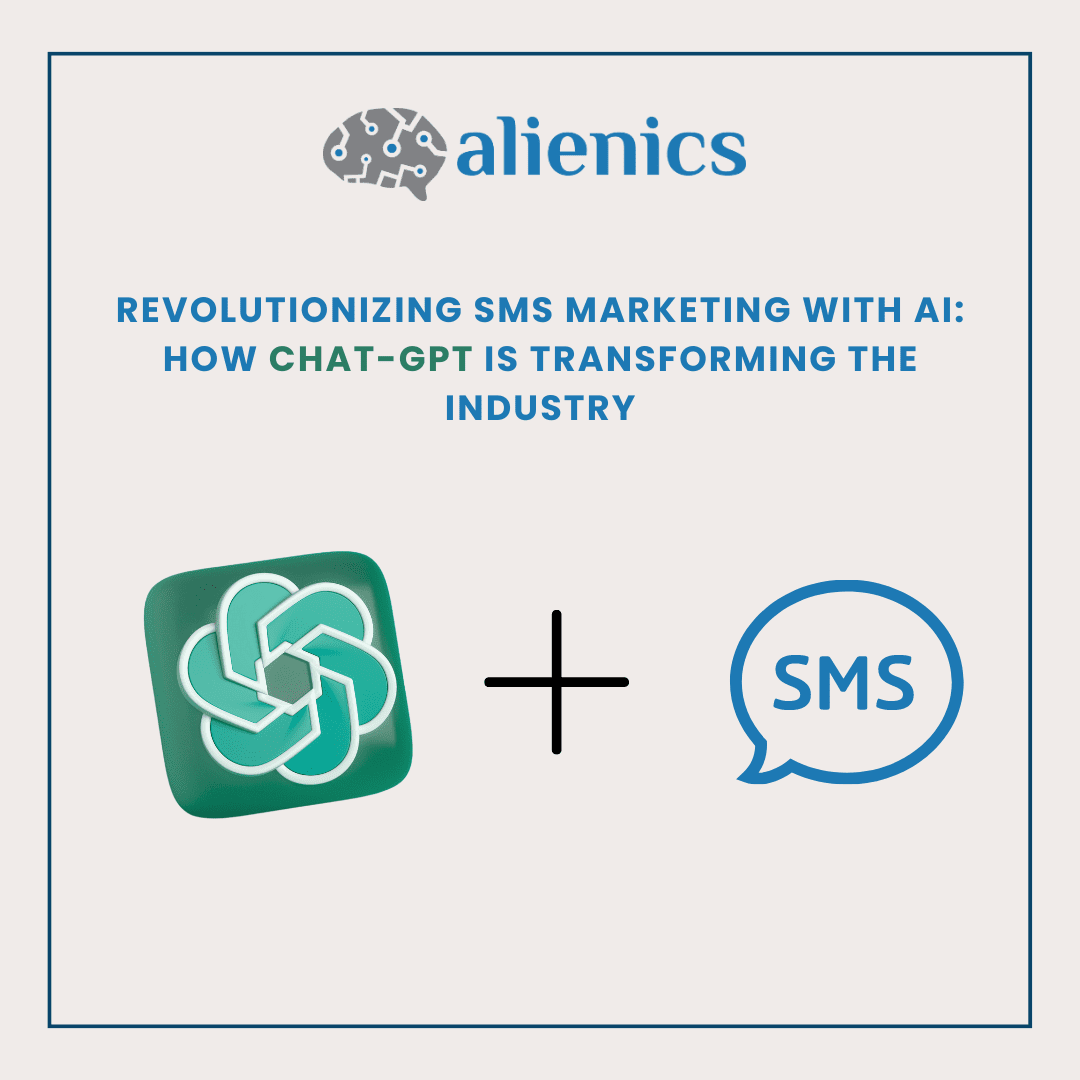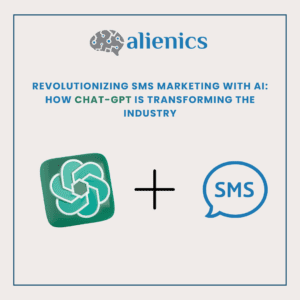In today’s fast-paced world, SMS marketing has become a crucial tool for businesses to reach out to their customers quickly and efficiently. It offers a direct communication channel that can be personalized and targeted to a specific audience. However, with the increasing competition and changing customer behaviors, businesses need to find new and innovative ways to enhance their SMS marketing strategy. This is where the power of AI comes in.
Artificial Intelligence (AI) has been transforming various industries for quite some time now, and the SMS marketing industry is no exception. AI-powered technologies like chat-gpt have the potential to revolutionize the way businesses communicate with their customers via SMS. In this blog, we will explore how AI, particularly chat-gpt, can transform the SMS marketing industry in significant ways. We will discuss the benefits, challenges, and future of AI in SMS marketing, along with case studies of successful AI-powered SMS marketing campaigns. So, let’s dive in and explore the exciting possibilities of AI in SMS marketing.
AI works in SMS marketing by using natural language processing (NLP) algorithms to understand the meaning and context of customer messages. This enables businesses to provide personalized responses and automated actions in real-time. Chat-gpt, in particular, is a cutting-edge AI technology that uses deep learning to generate human-like text responses.
AI-powered SMS marketing tools and platforms are already available in the market. These tools can automate various SMS marketing processes, including message segmentation, scheduling, and delivery. They can also analyze customer data and provide real-time insights and analytics to help businesses make data-driven decisions.
One example of an AI-powered SMS marketing tool is the Conversational Cloud by Twilio. This platform uses AI to enable two-way SMS communication, allowing businesses to engage with customers in a conversational manner. Another example is the MobileMonkey chatbot platform, which uses AI to create personalized SMS messages and chatbot experiences.
Overall, AI-powered SMS marketing tools and platforms can significantly improve the efficiency and effectiveness of SMS marketing campaigns. By automating processes and providing real-time insights, businesses can optimize their SMS marketing strategy and achieve better results.
Despite the many benefits of AI in SMS marketing, there are also several challenges and limitations to consider.
Firstly, ethical considerations must be taken into account when using AI in SMS marketing. It is crucial to ensure that customers are aware of how their data is being used and that their privacy is protected. Businesses must also ensure that their AI-powered SMS marketing campaigns are not discriminatory or biased in any way.
Secondly, data privacy and security concerns must be addressed when using AI in SMS marketing. Customer data must be protected and secured, and businesses must comply with data protection laws such as GDPR and CCPA.
Thirdly, the limitations of AI technology must be considered. While AI can automate many processes, it cannot replace human judgment and creativity. Businesses must ensure that their AI-powered SMS marketing campaigns are designed to augment human capabilities, not replace them entirely.
Lastly, human oversight and intervention are essential to ensure that AI-powered SMS marketing campaigns are effective and ethical. Humans can provide feedback and intervene when necessary to ensure that the AI is delivering the desired results.
Overall, businesses must carefully consider the challenges and limitations of AI in SMS marketing and implement appropriate measures to ensure ethical, effective, and secure use of AI technology. By doing so, they can leverage the power of AI to streamline their SMS marketing strategy and improve their ROI.
To understand the potential of AI in SMS marketing, let’s take a look at some case studies of successful AI-powered SMS marketing campaigns.
- Subway
Subway, the popular fast-food chain, used AI-powered SMS marketing to increase foot traffic to its restaurants. The campaign involved sending personalized offers and promotions to customers based on their location and preferences. The AI technology enabled Subway to segment its customers effectively and send highly targeted SMS messages. As a result, Subway saw a significant increase in foot traffic and sales.
- Sephora
Sephora, the beauty retailer, used AI-powered SMS marketing to provide personalized beauty tips and product recommendations to its customers. The AI technology enabled Sephora to analyze customer data and provide customized SMS messages based on their preferences and purchase history. This resulted in increased engagement and sales for Sephora.
- Hyatt
Hyatt, the hotel chain, used AI-powered SMS marketing to enhance its customer service and improve guest experiences. The campaign involved sending automated SMS messages to guests before, during, and after their stay. The AI technology enabled Hyatt to provide personalized recommendations and responses to guests, resulting in increased customer satisfaction and loyalty.
In each of these case studies, AI-powered SMS marketing played a significant role in the success of the campaigns. The AI technology enabled businesses to provide highly personalized and targeted SMS messages, resulting in increased engagement, sales, and customer satisfaction. By leveraging the power of AI, businesses can streamline their SMS marketing strategy and achieve better results.
Overall, the future of AI in SMS marketing is bright, with the potential to transform the industry in significant ways. However, businesses must carefully consider the challenges and opportunities of using AI in their SMS marketing campaigns and implement appropriate measures to ensure ethical and effective use of this technology.









